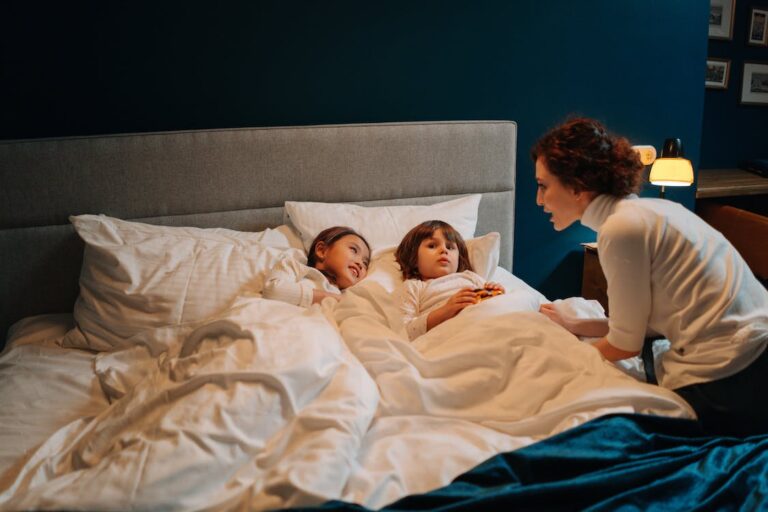The short answer is no, it’s generally not safe to put essential oils in your humidifier.
Do air humidifiers actually work?
Humidifiers can be particularly effective for treating dryness of the skin, nose, throat, and lips. They can also ease some of the symptoms caused by the flu or common cold. However, overusing humidifiers can potentially worsen respiratory problems. It’s important to know how to use them correctly.
What is an antimicrobial humidifier?
Humidifier Bacteriostactic Treatment by Essick Air is an antibacterial additive for evaporative humidifiers. Prevent the build-up of bacteria and algae in the water tanks of wick based, manually-filled cool moisture evaporative humidifiers by using this bacteriostatic humidifier treatment.
Is it good to sleep with a humidifier?
5 Benefits of using a humidifier during sleep. Humidifiers may be beneficial for adults and children during sleep. Sleep itself aids in repair, rejuvenation and maintenance of our immune system. Adding a humidifier to your bedroom can bolster the effects sleeping naturally provides.
Can I use eucalyptus oil in humidifier?
Eucalyptus oil can be added to a humidifier in one of two ways with equal effectiveness. The simplest method is to place 4 or 5 drops of the oil into the water reservoir of the humidifier, where it will be vaporized with the water.
What can I add to my humidifier water?
Add White Vinegar: Fill your humidifier with water, distilled or otherwise, and also add a cup of white vinegar to the tank. This will help prevent any mold from growing.
Can humidifier cause water in lungs?
Dirty humidifiers can especially cause problems for people with asthma and allergies. But even in healthy people, dirty humidifiers have the potential to trigger flu-like symptoms or even lung infections when the contaminated mist or steam is released into the air.
Is it bad to use tap water in humidifier?
Summary. Using tap water is fine for most humidifiers. Water does not need to be distilled or purified for it to be safely dispersed into the air in the form of water vapor. You can opt to use distilled water if you notice white mineral dust forming in your humidifier.
Should you sleep with a humidifier every night?
If you wake up with sinus congestion every morning or nose bleed on a later day, you should sleep with a humidifier. … So keep a humidifier running all night to reduce the chances of falling ill and nose bleed.
Are UV humidifiers safe?
humidifier with uv sanitizing light is crafted with a specially designed bulb, which is safe to be used around humans, making whole-house humidifiers with UV light a very much popular product today.
What is a UV humidifier?
Ultraviolet humidifiers by Enviracaire and Honeywell use ultraviolet (UV) light technology to sanitize water before it’s transformed into a soothing mist. This process eliminates 99.999% of germs, bacteria, viruses, and mold lurking in the water.
What kind of humidifier is best?
Related Items
- 1 Best Overall: Pure Enrichment MistAire Ultrasonic Humidifier. …
- 2 Best for Bedroom: Canopy Humidifier. …
- 3 Best for Winter: Pure Guardian Ultrasonic Warm and Cool Mist Humidifier. …
- 4 Best for Sinuses: Vicks Cool Mini Mist Humidifier. …
- 5 Best for Whole House: AIRCARE Whole-House Humidifier.
Are humidifiers good for Covid?
A humidifier can help. As for air purifiers, the Environmental Protection Agency says portable air cleaners and HVAC filters on forced-air heating systems cannot singlehandedly protect people from getting COVID-10.
Where should I place my humidifier?
You’ll want to place your humidifier near where the people are, but not too near where it will get in the way. For this purpose, placing the humidifier on a shelf or table usually works fine. Just be sure that the humidifier won’t damage anything in case it leaks, or it has a tray underneath it to collect water.
Should you use a humidifier every day?
Risks Of Overuse At the same time, high humidity can help airborne pathogens like bacteria and viruses spread through an area. Thus, when your humidifier has been overused and increased the humidity level of your home too much, those living there may have an increased risk of developing an infection.
Is breathing eucalyptus oil bad?
Eucalyptus oil can be inhaled through your nose and may provide some cold symptom relief. It’s also found in many topical decongestants. However, because even small doses of the oil can be toxic, you should avoid consuming it ( 9 ).
Is eucalyptus oil good for sleeping?
Similar to peppermint, eucalyptus essential oil is an effective treatment for sleep apnea caused by congestion. Its anti-inflammatory properties will clear up mucus from the nose and throat leaving your airways clear for easier breathing through the night.
Which is better diffuser or humidifier?
If you need more moisture in the air in your home, then you need a humidifier. If you only want to add fragrance to the air, and not moisture, then a diffuser is the proper product. Diffusers simply do not hold enough water to impact the humidity level of a room.
Can I put lemon juice in my humidifier?
It will make your whole house smell amazing, get rid of odors, and humidify the air, too. Deodorize the humidifier: Pour in lemon juice with the humidifier water. Turn it on and let it run the lemon juice will naturally deodorize the machine plus make the room smell fantastic.
What happens if you don’t use distilled water in humidifier?
The water you use to fill your tank could also cause issues. Both the CPSC and the EPA recommend filling your humidifier with distilled waternot tapto keep potentially harmful microorganisms out of the air you breathe.
Can you put vinegar in a humidifier?
Can you run vinegar through a humidifier? It’s best not to. While vinegar is used to clean a humidifier, you should not run the humidifier with vinegar in it, as it can irritate your eyes, nose, throat, and lungs.
When should you not use a humidifier?
You should never use a humidifier when the relative humidity level is higher than 50 percent. … When Not To Use a Humidifier?
- Dry skin/ inflammation.
- Xerostomia (dry mouth)
- Sinus/ flu/ nasal congestion.
- Headache.
- Red eyes/ dry eyes.
- Dry cough/ drip cough.
- Itchy throat.
- Nose bleed.
Can you get pneumonia from humidity?
It might surprise you to find out that neither cold weather nor wet hair can cause you to catch pneumonia. In fact, pneumonia in itself isn’t contagious, so you can’t really catch it at all. If you are wondering how do you get pneumonia, or have any other questions about this condition, FastMed can help.
Does moist air cause pneumonia?
Without a doubt, a humidifier does not cause pneumonia. Rather, they can help alleviate the symptoms. Be sure to purchase the right type of humidifier if you want to get relief with pneumonia. As a result, you can consider getting a humidifier.
How can I make distilled water at home?
The process of distilling is simple. Heat tap water to the point that it turns to vapor. When the vapor condenses back to water, it leaves behind any mineral residue. The resulting condensed liquid is distilled water.
Is boiled water the same as distilled water?
No, they aren’t the same. Boiled water is simply water that has had the temperature increased until it reaches its boiling point. … Distilled water is water that has been stripped of all impurities, including minerals and microorganisms.
Is boiled water good for humidifier?
Can you use boiled water in a humidifier? Using boiled water in your humidifier is not recommended. While boiling water will kill bacteria and viruses, it doesn’t remove dissolved minerals.
What’s the difference between a purifier and a humidifier?
What is the difference between an air purifier and a humidifier? An air purifier is used to clean the air by removing or otherwise inactivating pollutants from the air. … A humidifier, on the other hand, does not clean the air.
Can you run a humidifier 24 7?
Use Your Humidifier Correctly If you’re monitoring the humidity levels in your home, it’s relatively safe to run your humidifier around the clock. You should take special care not to leave anything running while you’re out of the house.
What are the pros of a humidifier?
Humidifiers add moisture to the air, which can benefit people with respiratory symptoms or dry skin. … Benefits of a humidifier may include:
- Preventing influenza. …
- Making a cough more productive. …
- Reducing snoring. …
- Keeping the skin and hair moist. …
- Benefits for the home.


